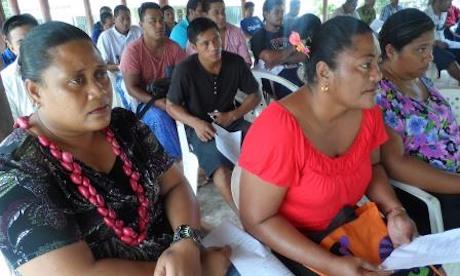There is still a huge need for open dialogue on ‘taboo’ subjects and on the meaning of the ‘Samoan way of life’ (fa’asamoa) and ensuring women’s right to equality within the family.
“This cannot happen without the leadership of government and other local stakeholders, including community and religious leaders, alongside women and men at all levels of society.”
These are some of the conclusions contained in a report from a United Nation Human Rights delegation that has just completed a visit to Samoa.
The delegation concluded that while huge strides had been made in tackling the issue of gender-based violence, much more still needs to be done to tackle deeply rooted gender discrimination.
Kamala Chandrakirana, who currently heads the UN Working Group on discrimination against women, says Samoa is only at the beginning of a long journey.
Samoan authorities have acknowledged the problem since a 2007 study on domestic violence found 46 percent of women surveyed had experienced some form of partner abuse and 60 percent been physically abused by someone other than a partner.
Data from the Domestic Violence Unit of the Ministry of Police shows between the years of 2007-2015 there was an increase of reported domestic violence of female victims between the ages of 17 and 33.
The increase refers only to cases reported to Police headquarters in Apia. It does not include cases reported to police outposts.
At the end of last year Samoa’s prime minister Tuila’epa Sa’ilele Malielegaoi set up a commission to inquire into domestic violence
Its chairman, Samoa’s ombudsman Maiava Iulai Toma, said during the consultations he came to realise that traditional institutions, such as the matai system, which is influential in regulating behaviour in villages, should be engaged.
“But then of course we have to really look at these institutions to see that they can truly provide solutions and that they’re not a significant part of the problem,” he said.
The UN delegation:
- Found many Samoans had been profoundly shocked by a recent government report revealing the scale of gender-based violence.
- Concluded addressing the root causes of violence against women would require a major shift in cultural perceptions about women and their place in society.
The delegation urged new policies including:
- A state-sponsored social welfare system
- Full support for women and girls who had suffered sexual or physical violence
- Better funding for the civil society groups that are already making an immense contribution despite limited resources.
The delegation carried out its fact-finding visit from 8 to 18 August.
It had been invited by the Samoan government to look into the current situation of women’s human rights in the country.
Source
